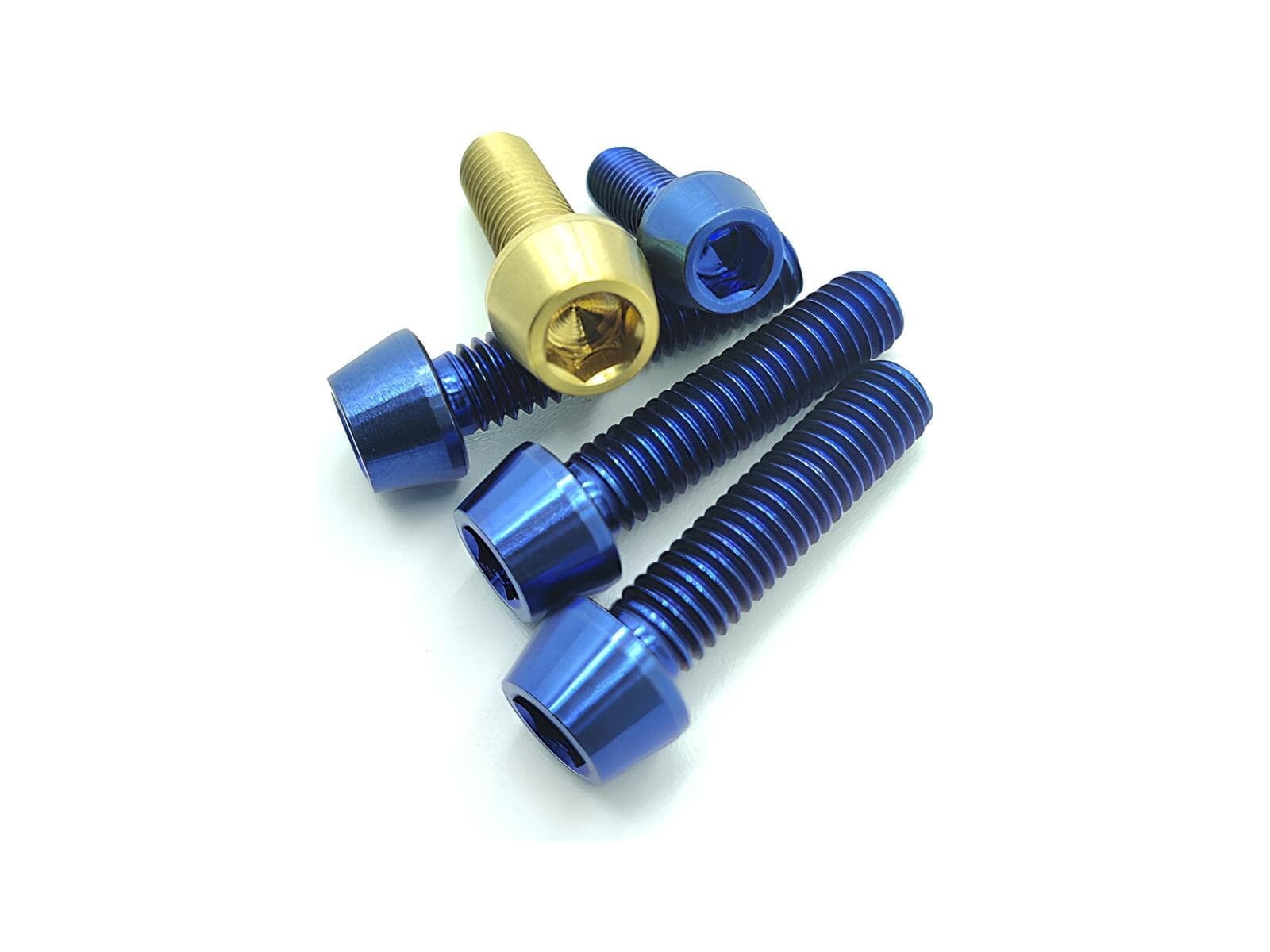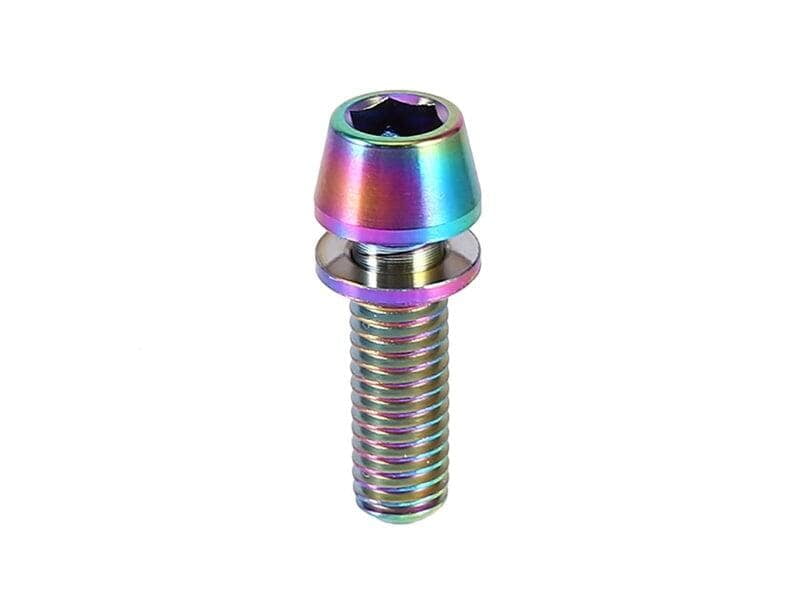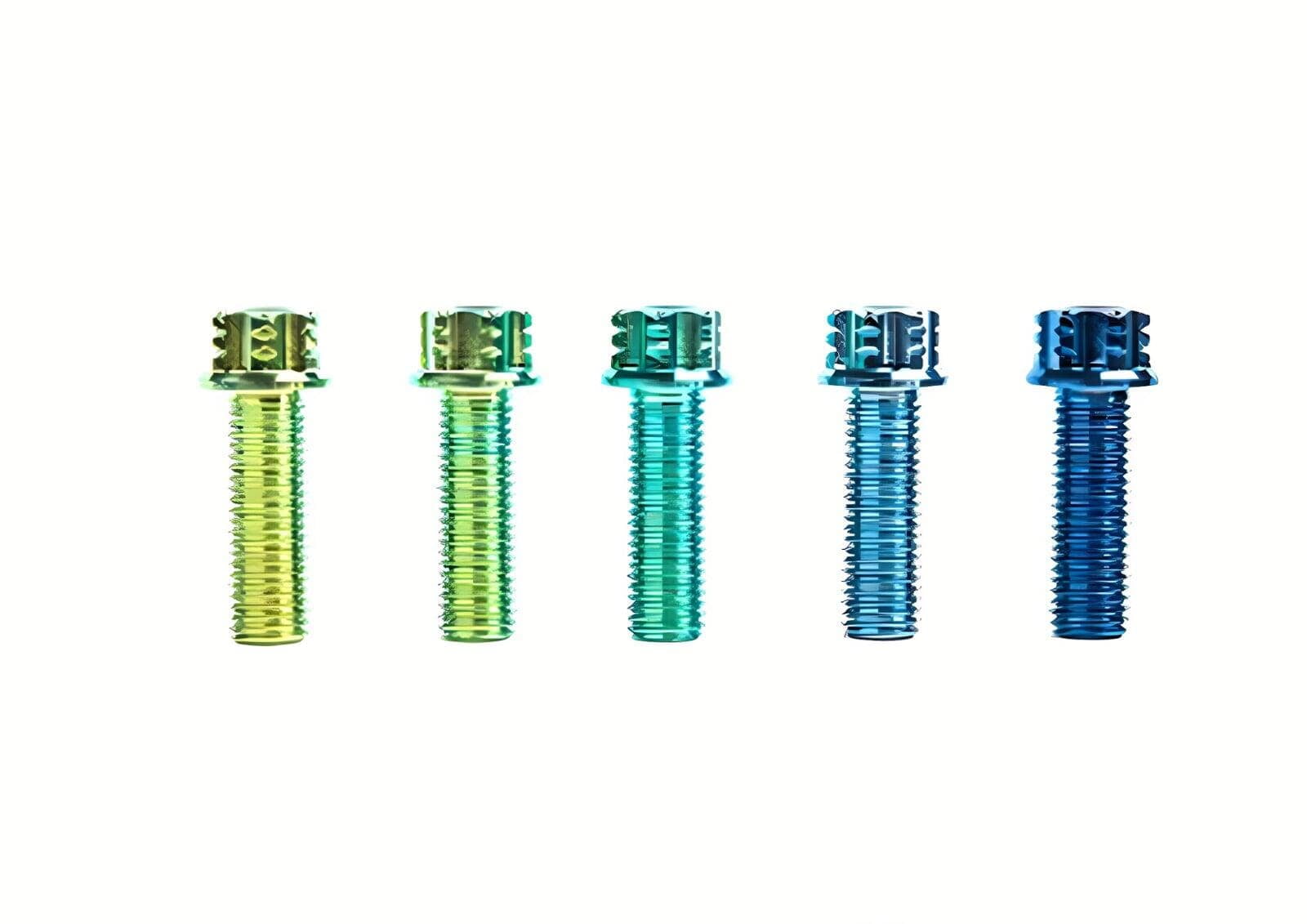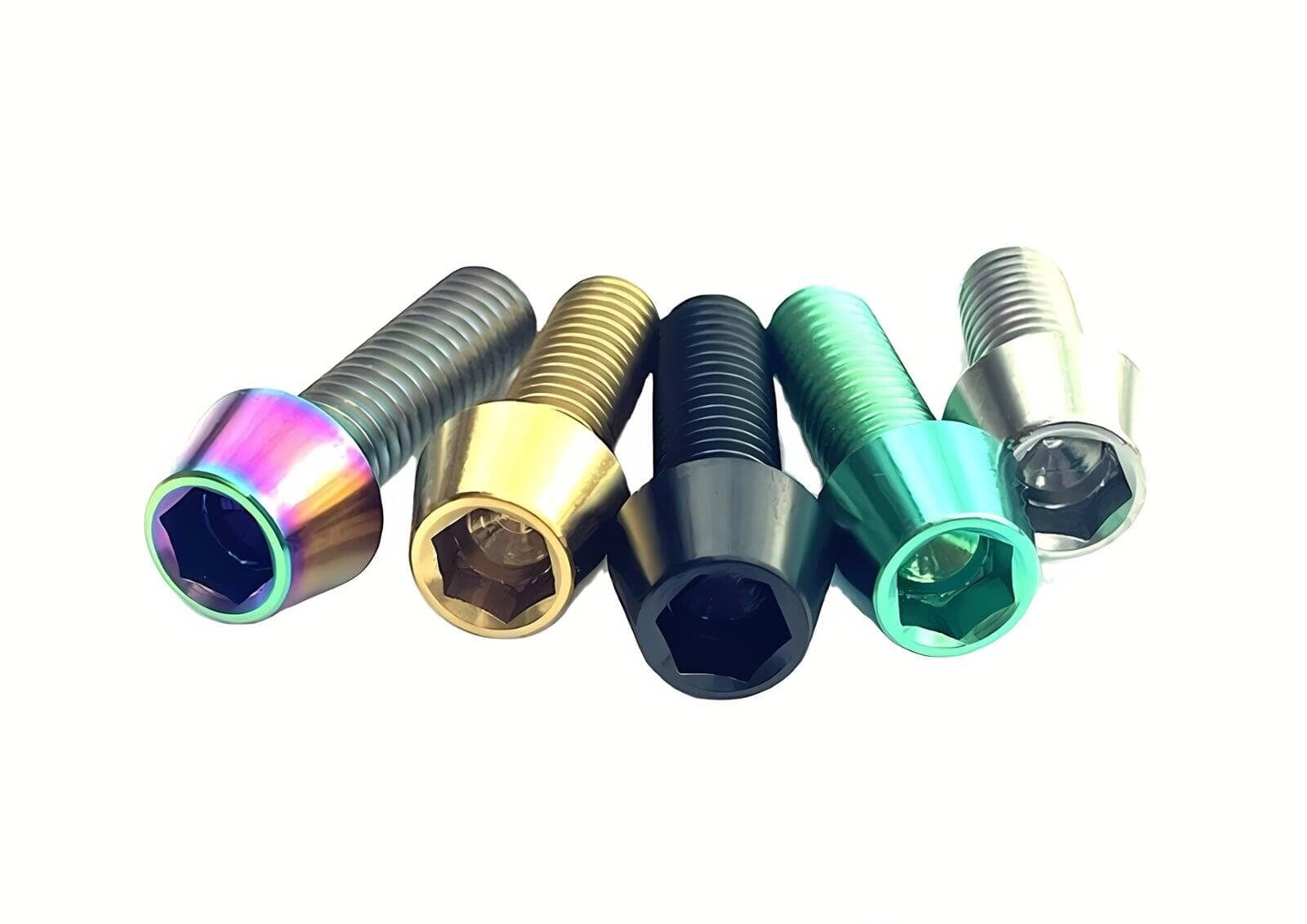Titanium bolts

GR1 Titanium bolts
TA1 features: GR1 is a kind of pure titanium, which has the characteristics of excellent corrosion resistance, light weight and high strength, and good biocompatibility. It is suitable for occasions that do not need to bear large loads and have high requirements for strong corrosiveness.
Size: The diameter range is usually M2-M64, and the length can be customized according to specific needs, generally between 6-300mm.

GR2 Titanium bolts
GR2 titanium boltsFeatures: GR2 is also made of pure titanium, which is more versatile and has similar characteristics to GR1, but may differ in some mechanical properties.
Dimensions: Same as GR1, diameter range M2-M64, length 6-300mm.

GR3 Titanium bolts
GR3 Titanium Alloy Bolt Features: GR3 is a kind of titanium alloy, which has the characteristics of high strength, excellent corrosion resistance, and low density. It is suitable for occasions that need to withstand large loads and have high requirements for corrosion resistance.
Size: Standard specifications are generally produced in accordance with international standards, such as M6-M24 hexagonal head bolts produced by GB/T 5782-2000 standard. Special specifications can be customized according to the needs of aerospace and other fields.

GR5 Titanium bolts
GR5 Titanium bolts
GR5 titanium alloy bolt features: The new titanium alloy screws can be used for a long time at a temperature of 600°C or higher, and low-temperature titanium alloys such as TC4 and TA7 can also maintain good ductility and toughness at low temperatures from -196 to -253°C.
Size: The standard specifications are generally produced in accordance with international standards, such as M6-M24 hexagon head bolts produced by GB/T 5782-2000 standard. Special specifications can be customized according to the needs of aerospace and other fields.

GR7 Titanium bolts
GR7 Titanium bolts
GR7 Titanium Alloy Bolt Features: Titanium is a non-magnetic metal that will not be magnetized even in a large magnetic field.
Size: The standard specifications are generally produced in accordance with international standards, such as M6-M24 hexagon head bolts produced by GB/T 5782-2000 standard. Special specifications can be customized according to the needs of aerospace and other fields.

GR9 Titanium bolts
GR9 Titanium bolts
GR12 titanium alloy bolt features: titanium has good biocompatibility, and has good compatibility with human tissue and blood. Therefore, American Standard titanium bolts have a wide range of applications in the medical field (such as cardiac stents, dental implants, etc.).
Size: The standard specifications are generally produced in accordance with international standards, such as M6-M24 hexagon head bolts produced by GB/T 5782-2000 standard. Special specifications can be customized according to the needs of aerospace and other fields.
Material properties
Lightweight and high-strength: Titanium is a lightweight metal that has a density of about 54% of steel, but is comparable in strength to high-grade alloy steel. This gives titanium bolts a significant advantage in applications where weight savings are required while maintaining high strength.
Excellent corrosion resistance: Titanium bolts have excellent corrosion resistance and can work stably for a long time in a variety of corrosive media such as acids, alkalis, and salts. This characteristic makes titanium bolts widely used in chemical industry, marine engineering and other fields.
Good biocompatibility: Titanium has good biocompatibility and will not cause allergic or toxic reactions when in contact with human tissues. Therefore, titanium bolts are often used as implants in medical fields such as dentistry, orthopedics and other surgeries.
High temperature stability: Titanium can still maintain good mechanical properties and chemical stability at high temperatures, which makes titanium bolts widely used in aviation, aerospace and other high-temperature environments.
Fields of application
Aerospace: Due to the characteristics of light weight, high strength, high temperature stability, etc., titanium bolts make them important fasteners in the aerospace field. In the manufacture of aircraft, rockets, and other aircraft, titanium bolts are widely used to connect various parts.
Chemical: The excellent corrosion resistance of titanium bolts makes them widely used in the chemical field. In the manufacture and installation of chemical equipment, titanium bolts can resist the erosion of various corrosive media and ensure the long-term stable operation of the equipment.
Medical: The biocompatibility of titanium bolts makes them widely used in the medical field. In dentistry, orthopedics, and other surgeries, titanium bolts are often used as implants to fix tissues such as teeth and bones.
Offshore engineering: Due to the corrosive nature of the marine environment, it is difficult for traditional metal fasteners to meet the demand. The excellent corrosion resistance of titanium bolts makes them an important choice in the field of marine engineering. Titanium bolts play an important role in the construction of offshore platforms and the laying of submarine pipelines.
Types and specifications
There are many types of titanium bolts, including round head bolts, hex bolts, countersunk bolts, and other types. In terms of specifications, the diameter range of titanium bolts is usually M2-M64, and the length can be customized according to specific needs. In addition, titanium bolts can also be surface treated as needed, such as polishing, sandblasting, etc., to meet the needs of different application scenarios.

